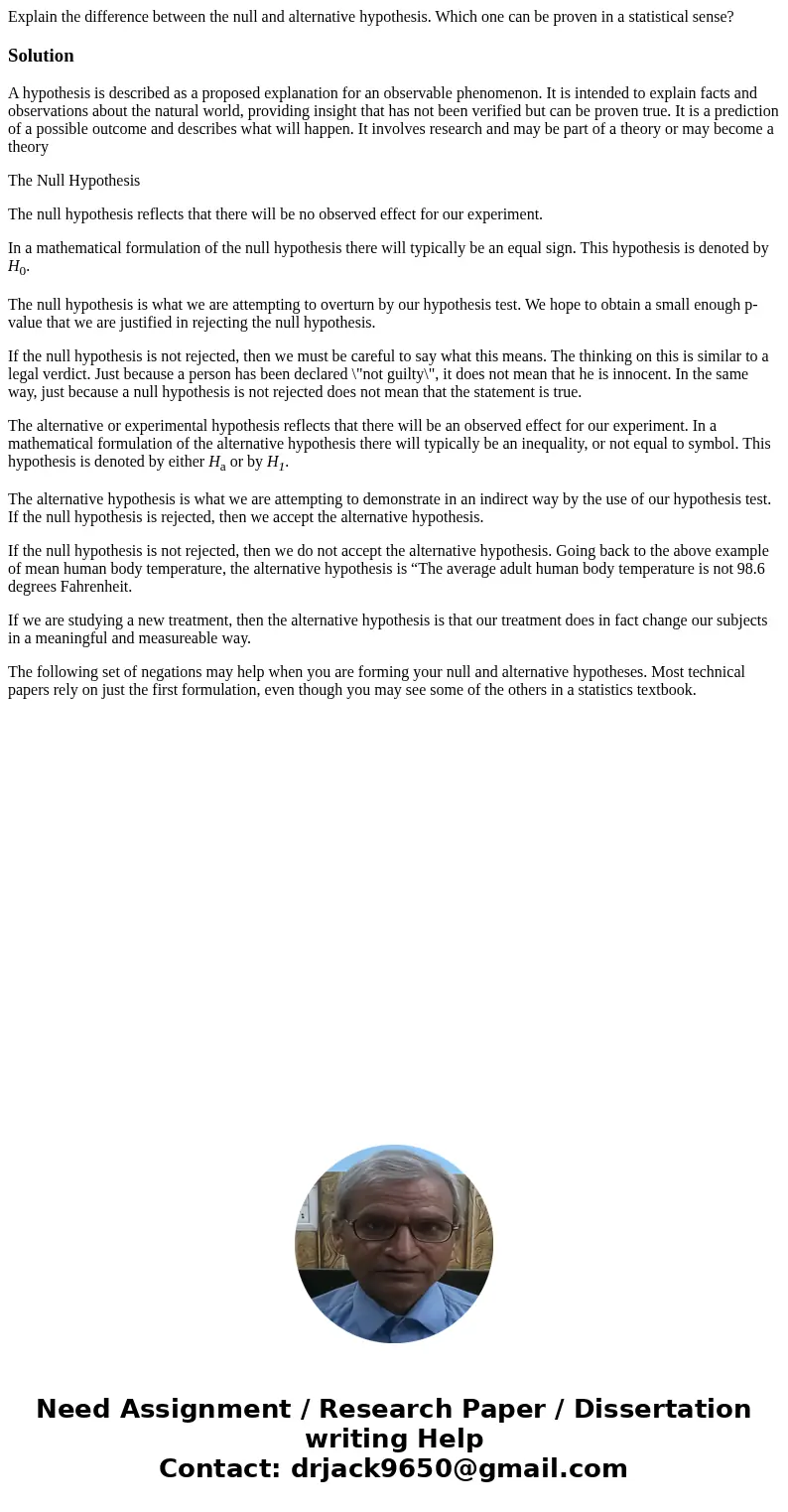Explain the difference between the null and alternative hypo
Explain the difference between the null and alternative hypothesis. Which one can be proven in a statistical sense?
Solution
A hypothesis is described as a proposed explanation for an observable phenomenon. It is intended to explain facts and observations about the natural world, providing insight that has not been verified but can be proven true. It is a prediction of a possible outcome and describes what will happen. It involves research and may be part of a theory or may become a theory
The Null Hypothesis
The null hypothesis reflects that there will be no observed effect for our experiment.
In a mathematical formulation of the null hypothesis there will typically be an equal sign. This hypothesis is denoted by H0.
The null hypothesis is what we are attempting to overturn by our hypothesis test. We hope to obtain a small enough p-value that we are justified in rejecting the null hypothesis.
If the null hypothesis is not rejected, then we must be careful to say what this means. The thinking on this is similar to a legal verdict. Just because a person has been declared \"not guilty\", it does not mean that he is innocent. In the same way, just because a null hypothesis is not rejected does not mean that the statement is true.
The alternative or experimental hypothesis reflects that there will be an observed effect for our experiment. In a mathematical formulation of the alternative hypothesis there will typically be an inequality, or not equal to symbol. This hypothesis is denoted by either Ha or by H1.
The alternative hypothesis is what we are attempting to demonstrate in an indirect way by the use of our hypothesis test. If the null hypothesis is rejected, then we accept the alternative hypothesis.
If the null hypothesis is not rejected, then we do not accept the alternative hypothesis. Going back to the above example of mean human body temperature, the alternative hypothesis is “The average adult human body temperature is not 98.6 degrees Fahrenheit.
If we are studying a new treatment, then the alternative hypothesis is that our treatment does in fact change our subjects in a meaningful and measureable way.
The following set of negations may help when you are forming your null and alternative hypotheses. Most technical papers rely on just the first formulation, even though you may see some of the others in a statistics textbook.

 Homework Sourse
Homework Sourse